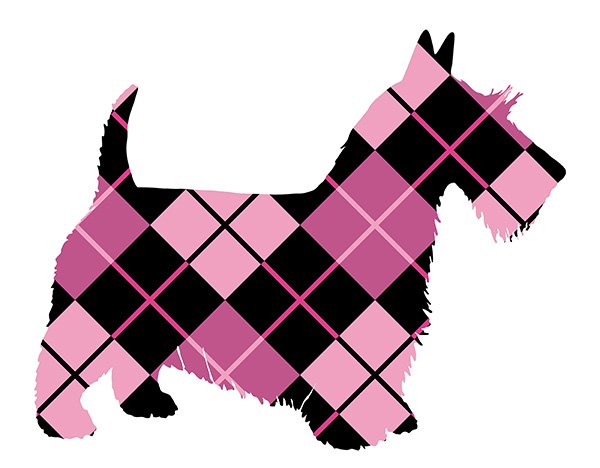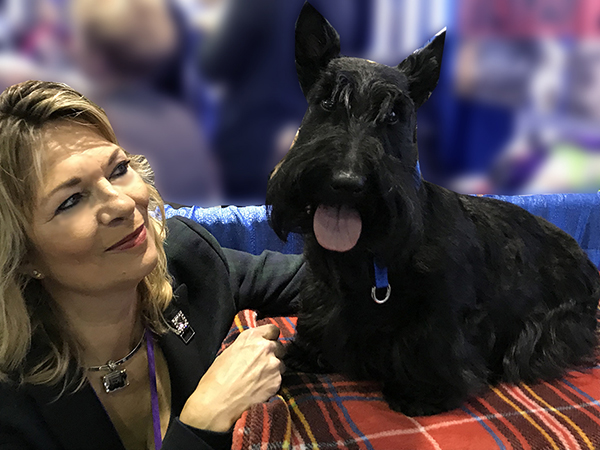
Is A Scottish Terrier the right breed for you?
You have just been captivated by a pair of shiny, black, shoe button eyes, a fuzzy face and a quizzical expression. But you MUST do your homework to make sure the Scottie is the kind of dog for you and your family.
The Scottish Terrier Club of Greater New York urges you to think carefully about what you want from your pet; read up on the breed, talk to breeders and fanciers, and make sure that the Scottish Terrier is the right breed for you.
What Do Scotties Look Like?
Scotties stand about 10 to 12 inches at the shoulder and weigh between 18-23 pounds. They can range in color from black, or more commonly, brindle which is a combination of black with another color, usually a reddish brown or silver, to wheaten. The outer coat is hard and wiry with a dense soft undercoat. See the Scottie Standard here.
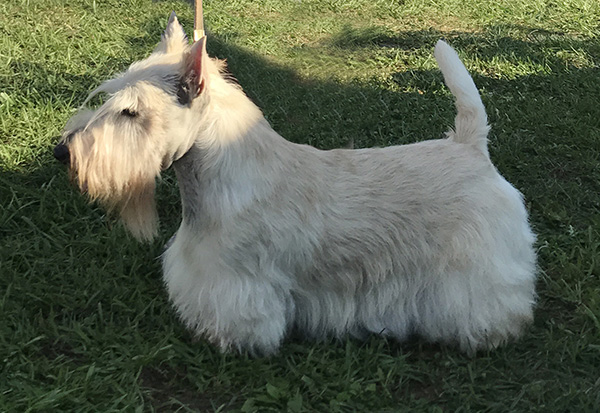
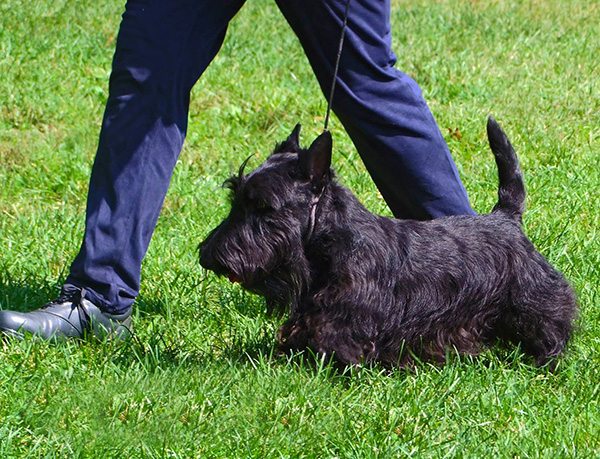
Personality Plus!!!
Scotties are first and foremost terriers. Originally from the highlands of Scotland, they were bred to go to ground, or dig, in pursuit of badgers, rats, foxes and other borrowing animals. They enjoy digging, and will landscape your yard if you let them.
Scotties are intensely curious, independent, active and agile. Intelligent as well as playful, they are loyal, loving companions and excellent watchdogs.
Scotties' exercise requirements are moderate; they love a brisk walk or a game of ball. Scotties are adaptable and dependable, but can be aggressive with other animals.
Training, Togetherness, and Sports
Crate training is encouraged from an early age with Scotties, for a number of reasons. It helps in housebreaking. It keeps curious, active puppies safe when you are not around to watch them. It gives them a sense of privacy for food and rest. And if you want to do Scottie sports or showing, your dog will need to feel that the crate is a happy place to be, wherever they go.
They are loyal famiIy dogs and do not always give their love freely to others. Scotties have their own opinions. Occasionally they can be stubborn and willful.
Early obedience training is highly recommended. Scotties love the time spent with you in training if you avoid force and make training fun. They look forward to doing things with you!
Scotties excel in agility and terrier trials. Increasingly we are seeing Scotties in rally, barn hunt, scent work and even obedience, as families discover the fun of partnering with their Scotties, uncovering talents and building skills in various challenging activities that their Scotties take to with gusto.
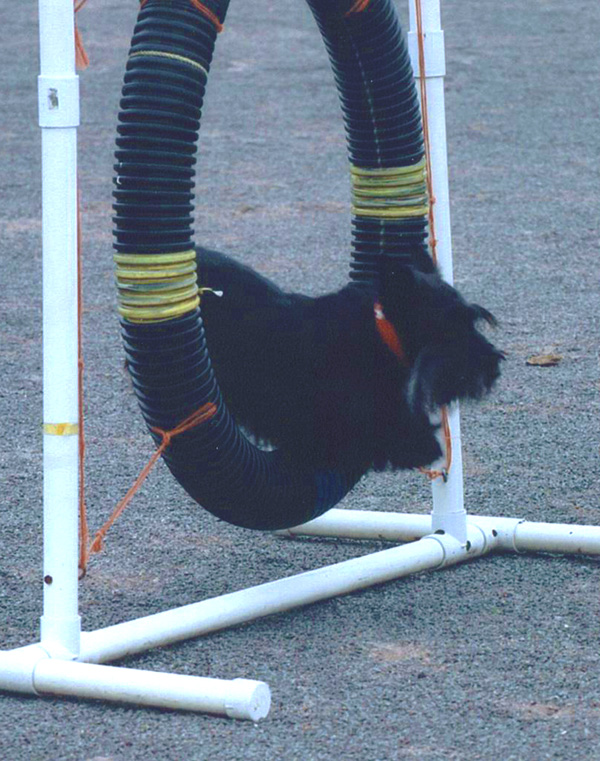
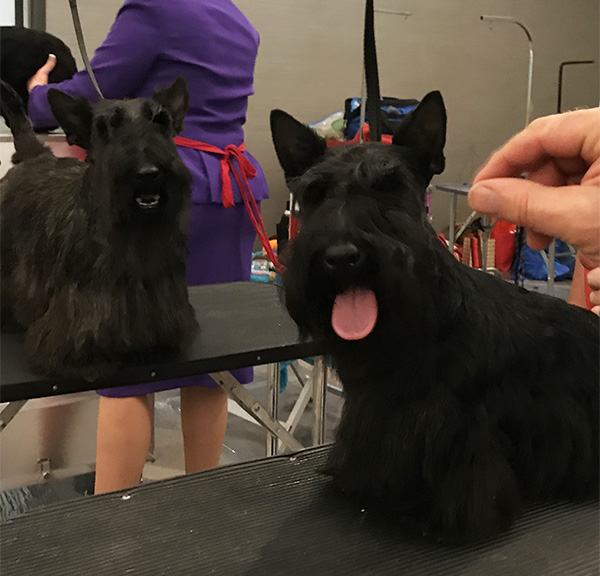
Grooming
Considerable grooming is required to keep your Scottie neat and comfortable. A professional grooming every 6 to 8 weeks is recommended to maintain those distinctive Scottie good looks.
Between groomings, a twice weekly brushing with a slicker brush, then finishing off with a thorough combing will keep the coat free of tangles and will help prevent skin problems.
If you are thinking about showing your pup, extensive grooming is required. The Scottish Terrier Club of America has developed a fabulous manual and instruction video on how to groom a Scottie. You can purchase it here.
Healthy Scotties
Historically Scotties have had susceptibility to certain diseases, such as skin problems, canine cramp, hypothyroidism, von Willebrand's disease (VWD), which is a form of hemophilia, and CMO, which affects the growth of the jawbone.
Fortunately there are now DNA tests that can indicate a likelihood that a sire or dam can pass along VWD and CMO to puppies. Many breeders are choosing to have their breeding dogs tested for some of these problems, and each dog that completes the testing is said to be CHIC tested. CHIC is an acronym for The Canine Health Information Center which maintains a DNA Bank that collects and stores canine DNA samples along with corresponding genealogic and phenotypic information to facilitate future research and testing aimed at reducing the incidence of inherited disease in dogs.
If properly cared for, Scotties can live long and healthy lives. Their average life span is about 10 to 12 years, but some have been known to live as long as fifteen years!
